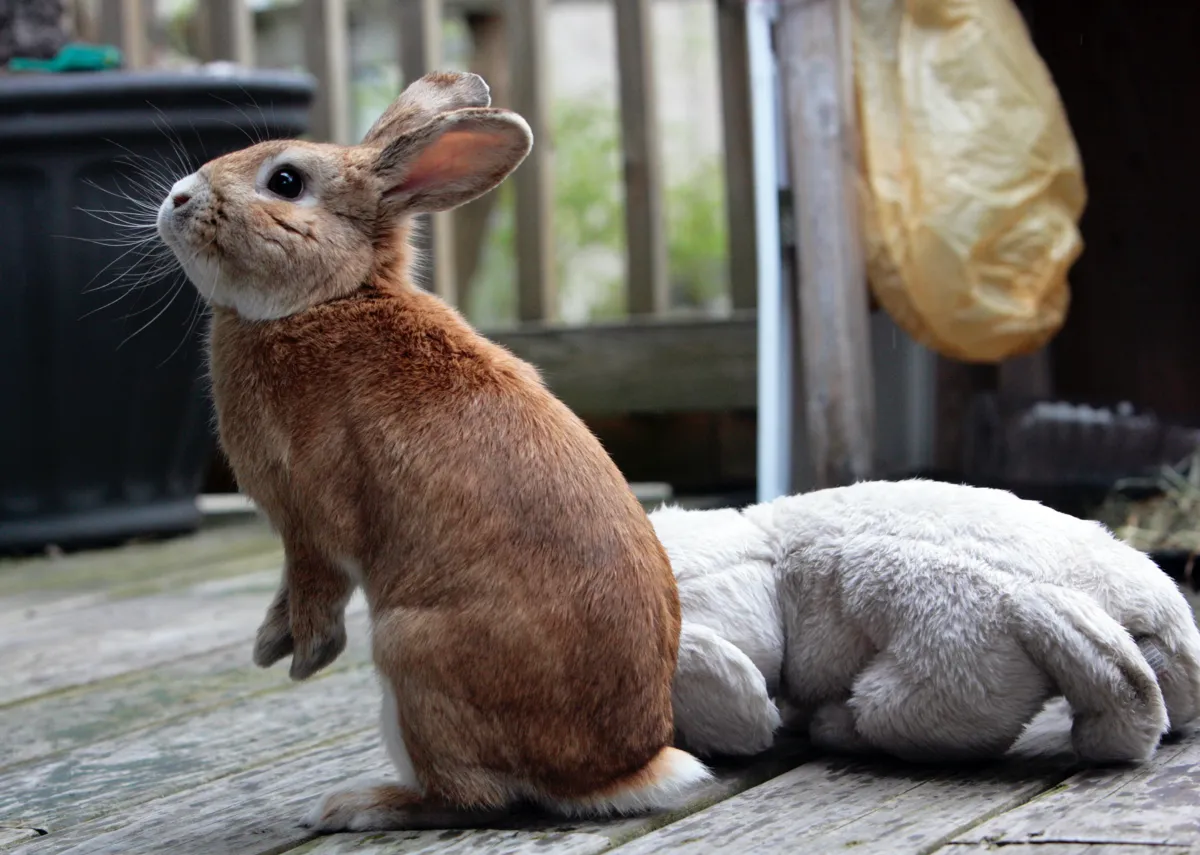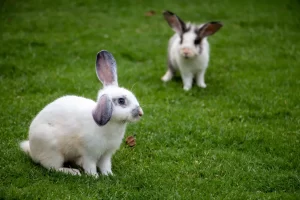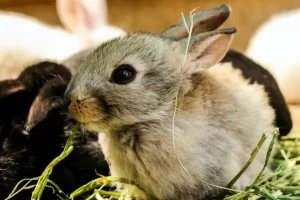Are you ready to hop into the world of bunny ownership? Before you bring one of these adorable creatures into your home, it’s crucial to gather all the necessary information.
In this article, we’ll explore the top 7 questions you should ask when getting a bunny. From understanding their age and gender to ensuring their health and creating a suitable environment, we’ll provide you with the knowledge you need to make the best decisions for your new furry friend.
Let’s dive in!
In This Article
- 1 Age: How Old Is the Bunny and What Signs Should I Look for to Determine Its Age
- 2 Gender: How Can I Determine the Gender of the Bunny and Why Is It Important
- 3 Health: What Should I Check for in Terms of the Bunny’s Health Before Bringing It Home
- 4 Temperament: How Can I Assess the Bunny’s Temperament and Ensure Compatibility With My Family
- 5 Diet and Nutrition: What Should I Feed the Bunny and How Can I Ensure It Receives Proper Nutrition
- 6 Housing and Environment: What Kind of Living Space and Environment Is Suitable for a Bunny
- 7 Veterinary Care and Vaccinations: What Kind of Medical Care Does a Bunny Need and How Can I Find a Rabbit-Savvy Veterinarian?
Age: How Old Is the Bunny and What Signs Should I Look for to Determine Its Age
When determining the age of a bunny, you should look for signs such as teeth, condition, and size to estimate its age. The teeth can provide valuable information, as baby bunnies have small, sharp incisors that grow quickly. As they age, their teeth become larger and more worn down.
Additionally, the condition of the bunny’s fur and overall health can give clues about its age. Younger bunnies tend to have soft, shiny fur, while older ones may show signs of aging such as graying or thinning fur. Size is another indicator, as baby bunnies are smaller and more delicate compared to adult rabbits.
Knowing the age of a bunny is important for proper care and understanding its needs. It allows you to provide appropriate nutrition, monitor growth and development, and plan for any age-related health issues.
Furthermore, knowing the age of a bunny is crucial when determining its gender, which has its own set of considerations and implications. Understanding the bunny’s age and gender helps create a more informed and tailored approach to its care and well-being.
Gender: How Can I Determine the Gender of the Bunny and Why Is It Important
How can you determine the gender of the bunny and why is it important?
Determining the gender of a bunny can be challenging, especially in baby bunnies. However, it’s important to know the gender for several reasons.
Firstly, knowing the gender is crucial for naming your bunny. Whether you want a cute, gender-specific name or a more neutral one, it’s important to have this information.
Secondly, understanding the gender of your bunny is essential for compatibility. If you already have a bunny or plan to introduce your bunny to another, knowing their genders can help prevent unintentional breeding and potential conflicts.
Therefore, it’s important to learn the methods of determining gender and ensure a harmonious and safe environment for your bunny.
Health: What Should I Check for in Terms of the Bunny’s Health Before Bringing It Home
Before bringing a bunny home, you should check for any signs of illness or health issues. It’s crucial to ensure that your new furry friend is in good health when it comes to bunny adoption.
Start by examining the bunny’s eyes for any excessive discharge or matting, which could indicate an infection. Sneezing or mucus around the nose may be a sign of snuffles, a common respiratory issue in rabbits.
Check the bunny’s ears for any signs of mites or canker. Additionally, make sure the bunny’s teeth are properly aligned, as malocclusion can lead to lifelong dental problems.
Keep an eye out for diarrhea, sores, missing hair, or excessive cecotropes, as these can indicate digestive issues.
Temperament: How Can I Assess the Bunny’s Temperament and Ensure Compatibility With My Family
To ensure compatibility with your family, it’s important to assess the bunny’s temperament and observe their behavior and personality. Here are some key points to consider when evaluating the bunny’s temperament:
- Assessing behavior: Observe how the bunny interacts with you and others. Look for signs of friendliness, curiosity, and willingness to interact. Pay attention to any signs of fear or aggression, as these can indicate potential challenges in compatibility.
- Introducing to other pets: If you have other pets at home, it’s crucial to introduce the bunny to them in a controlled and supervised manner. Watch for any signs of aggression or stress from both the bunny and the other pets. A gradual introduction process can help ensure a harmonious coexistence.
- Consideration of individual preferences and needs: Each bunny has its own personality and preferences. Take into account your family’s lifestyle and the type of interaction you desire with the bunny. Some bunnies may enjoy more cuddling and handling, while others prefer to interact on the ground.
- Adoption from a shelter: If you adopt a bunny from a shelter, you can often get information about their general personality and behavior. This can help you make a more informed decision about their compatibility with your family.
- Changes in temperament: Keep in mind that bunnies’ personalities may change as they reach maturity. What may seem like a calm and friendly bunny as a baby may develop different traits as they grow older. Stay open to the possibility of changes and be prepared to adapt accordingly.
Assessing the bunny’s behavior and considering their compatibility with your family and other pets is crucial to ensure a harmonious and fulfilling relationship. By observing their temperament and taking into account individual preferences and needs, you can make an informed decision about bringing a bunny into your home.
Diet and Nutrition: What Should I Feed the Bunny and How Can I Ensure It Receives Proper Nutrition
When getting a bunny, it’s important to understand the proper diet and nutrition to ensure your bunny receives the necessary nutrients. A balanced diet for a bunny consists of hay, pellets, and fresh vegetables.
The majority of a bunny’s diet should be high-quality hay, such as timothy or orchard grass hay, which provides essential fiber for digestive health. Hay should be available at all times to mimic the natural grazing behavior of rabbits.
Pellets should be fed in limited quantities, about 1/4 cup per 5 pounds of body weight, and should be made specifically for rabbits.
Fresh vegetables, such as leafy greens, should be introduced gradually and make up about 10-15% of the bunny’s diet.
It’s important to establish a feeding schedule and consult with a veterinarian for specific dietary needs to ensure your bunny receives proper nutrition.
Housing and Environment: What Kind of Living Space and Environment Is Suitable for a Bunny
Ensure your bunny has an adequate living space and environment that’s suitable for its needs.
A suitable living space for a bunny includes:
- Sufficient space for exercise and movement: Bunnies need room to hop, run, and explore, so provide a spacious enclosure or bunny-proofed area.
- Bunny proofing the environment: Remove any potential hazards such as electrical cords, toxic plants, or small objects that your bunny might chew on or swallow.
- Suitable bedding materials and cleanliness: Use safe and comfortable bedding materials like hay or straw, and clean the living space regularly to maintain good hygiene.
- Temperature control and protection from extreme weather: Bunnies are sensitive to temperature changes, so ensure the living space is kept at a comfortable temperature and provide shade or shelter from hot or cold weather.
- Enrichment and toys for mental stimulation: Bunnies are intelligent and active animals, so provide toys, tunnels, and hiding places to keep them mentally stimulated and entertained.
Veterinary Care and Vaccinations: What Kind of Medical Care Does a Bunny Need and How Can I Find a Rabbit-Savvy Veterinarian?
Don’t forget to schedule regular check-ups and vaccinations for your bunny to ensure their overall health and well-being. Just like any other pet, bunnies require medical care to maintain their optimal health.
Finding a rabbit-savvy veterinarian is crucial in providing the best medical attention for your furry friend. A rabbit-savvy veterinarian is knowledgeable about the specific medical needs of bunnies and can provide appropriate care and treatment. They can guide you on vaccinations, spaying/neutering, dental care, and emergency care.
To find a rabbit-savvy veterinarian, you can start by asking for recommendations from other bunny owners or local rabbit rescue organizations. It’s important to choose a veterinarian who’s experience working with rabbits and understands their unique medical requirements.





